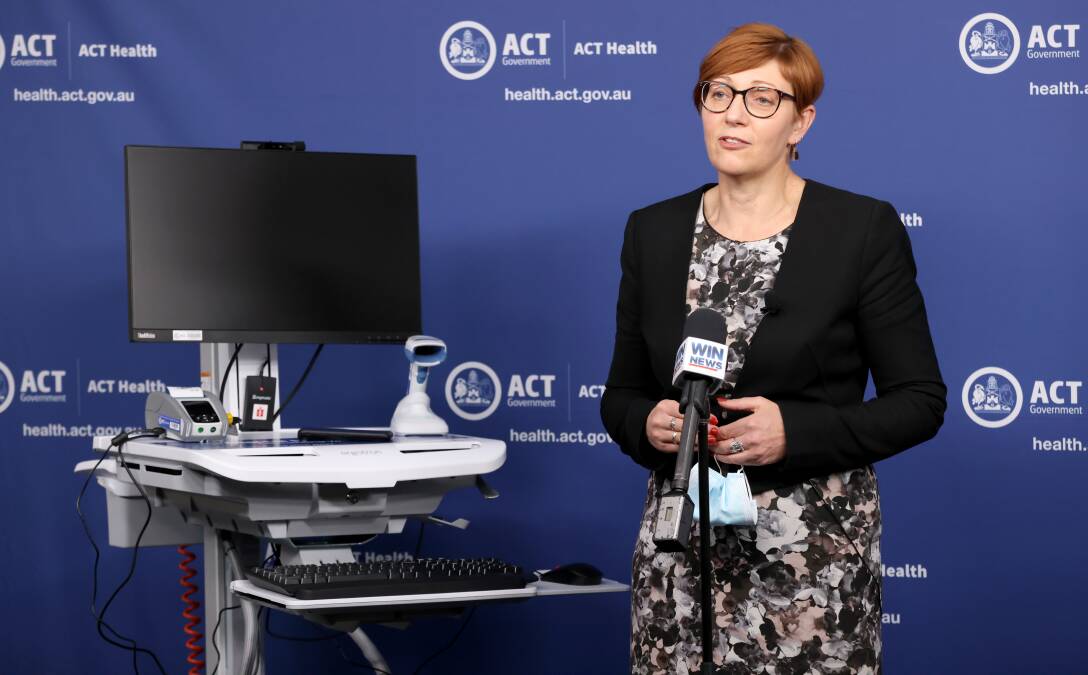
The ACT government has defended the rollout of the new digital health record, despite technical issues which caused some people to receive medical information that was not theirs.
Health Minister Rachel Stephen-Smith said while there had been some "teething issues" teams had done an "incredible job" in implementing the new system.
But in the process some people's medical records were merged with others. Authorities say this only happened to fewer than five people but they are relying on people to come forward if they have experienced the issue.
Other people received information about medical appointments that were for a family member.
Authorities also say 75,000 people received a notification through the ACT Digital Health Record related to historical records.
The 75,000 people who received messages related to old test results and this was due to old data being uploaded onto the system.
The issue affected those who had created their own accounts for the digital health record. About 186,000 people had previously signed up to the record to book a COVID vaccine or to receive care for COVID at home.
The digital health record, which went live on Saturday, collated all paper and digital records in the territory's public health system under the one electronic system.
ACT Health chief information officer Peter O'Halloran said most of the incorrect messages were sent to family members who had used their details to sign up a relative to the system.
"A lot of people signed up for [the digital health record] their spouse or their partner or their children or their loved ones and family and friends," he said.
"At times they then use their own identifiers such as their own email address and phone number to sign up somebody else.
"What has then happened is a number of people have then received further information through My DHR using the contact details they provided for another person."

Ms Stephen-Smith said if anybody had concerns about any information they had received they should contact ACT Health. She sought to reassure Canberrans by saying there hasn't been anything to threaten personal security records.
She said any issues had been "rectified immediately".
"If anybody thinks that their records may have been merged incorrectly, if they think there's something in their record that doesn't belong to them, we definitely want you to get in touch with us to let us know about that," she said.
"That has only been found to be the case in a very, very small number of records and that's an incredible reflection on the team that was doing this work.
"Given that complexity, I think that it's been a really incredible outcome to have such a small number of identified errors where something's been merged incorrectly."
ACT Health was asked whether the incorrect messages constituted a breach of the Health Records (Privacy and Access) Act.
In response, a government spokeswoman did not address the question but said the issue came from people sharing their family members contact details.
"The reported instances have been investigated and found that people are sharing their family members' contact details (mobile phone and email addresses) when interacting with ACT public health services," the spokeswoman said.
"Primarily we have found family information was shared during registration for a COVID vaccination or treatment."
Ms Stephen-Smith said if authorities had not needed to open up the digital health record for people to book vaccination appointments they probably would have waited until the system was implemented in the hospital.
Mr O'Halloran said despite the concerns all the feedback had been "overwhelmingly positive".
"There are absolutely people with concerns and valid concerns but there's also a groundswell of positive feedback from people across Canberra talking about how wonderful it's going to be, how easy it makes their life," he said.
"Given the scale of the rollout and the scale of what we're doing in the middle of global health pandemic, I think the rollout has gone reasonably well, so far"
The government has been criticised for rolling out the program during the pandemic.
As part of the rollout, more than 14,000 health staff had to undertake training during work hours. Some elective surgeries had to be transferred to private hospitals in order for this to happen.
But authorities stood by their decision and referenced the fact Victoria had also implemented a similar system during the pandemic.
"In some ways, there's never a good time to do a rollout of a system like this," Mr O'Halloran said.
Mr O'Halloran said there was extra support for staff in busy areas of the hospital, including the emergency department and the intensive care unit.
There were delays over the weekend due to the implementation of the system.







